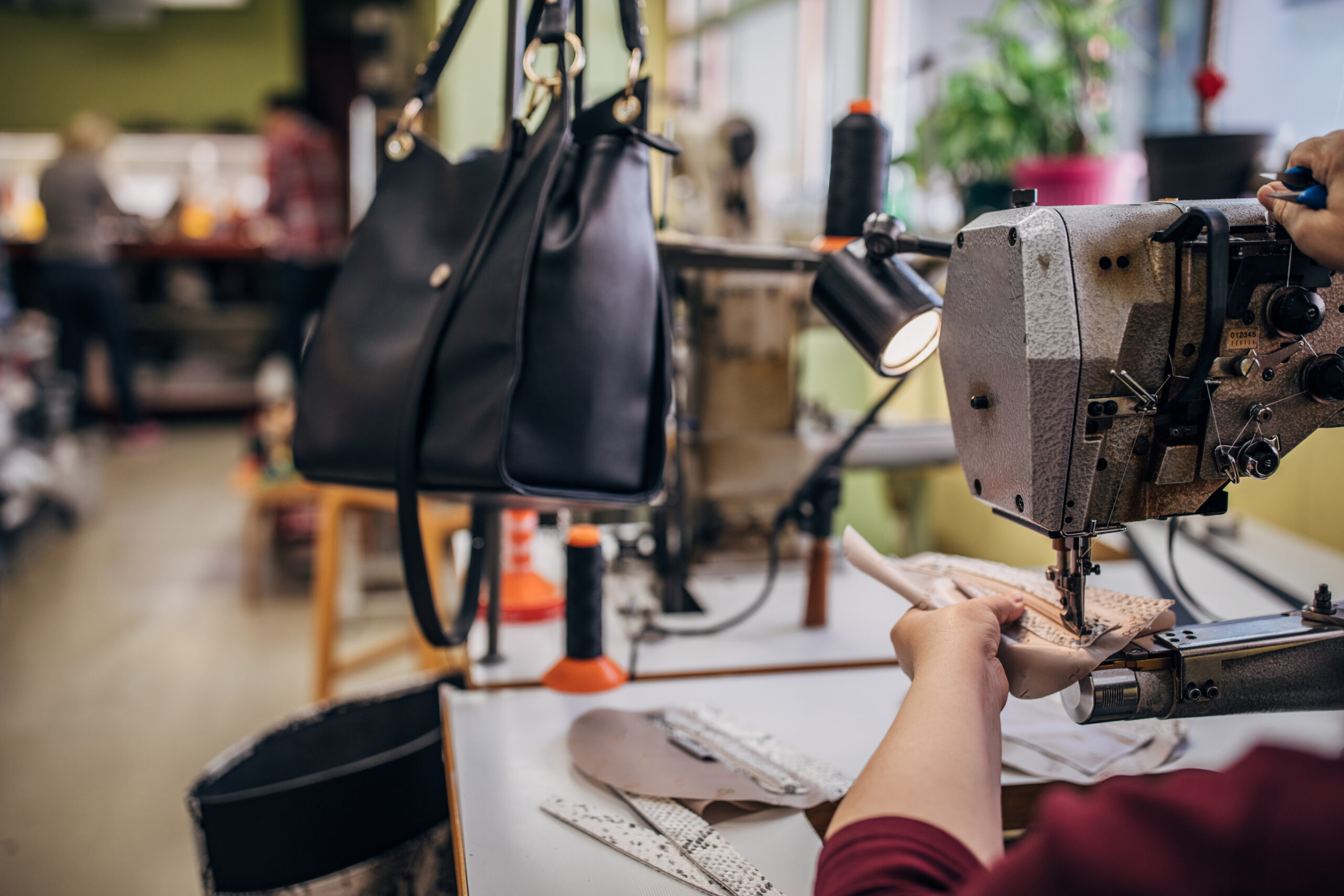Luxury brands claiming “Made in USA” are under fire as Chinese factory workers and TikTok creators claim they are exposing a different reality.
As President Trump raises tariffs on Chinese imports, some as high as 145 percent, China is clapping back with receipts. Videos now circulating on Douyin (China’s version of TikTok) allege that major U.S. and European luxury labels are quietly manufacturing goods in Chinese factories, despite marketing them as American-made.
From Michael Kors to Calvin Klein, and even the iconic Levi’s jeans, creators allege they are pulling back the curtain. One viral clip even features an AI-generated Trump lacing up Nike sneakers inside a factory in Guangdong.
Factory workers are also sharing alleged behind-the-scenes images and videos of high-end handbags, shoes, and cosmetics being made domestically—long before the designer labels are added overseas.
One video breaks down the cost of an Hermes Birkin Bag, revealing it costs only around $1,000 to produce.
TikTok is Watching, and the Internet Is Living for It
Users online have responded with a mix of shock, validation, and some serious side-eye at U.S. luxury brands.
TikTok creator @TheKempire likened China’s exposé to a “Real Housewives” showdown.
“Honestly this fight between China and the U.S. is giving Monique Samuels versus Gizelle [Bryant] from season five of ‘The Real Housewives of Potomac,’” he said. “And if you’re a housewives fan, you understand completely what I mean. Because China has their binder out and they’re exposing everything. And the reads are LANDING! The reads are EPIC!”
In the comments, another user added, “The U.S. went low, China is sitting next to the Devil. Love it.”
For some, the drama is more than entertainment. It’s a wake-up call.
“I now see why billionaires don’t wear designer,” one commenter wrote.
Another TikToker dissected a Chanel lipstick’s supply chain, revealing it costs around $5 to produce in China before being shipped to France for branding.
“We don’t do cheap. We do understated luxury,” she insisted, challenging stereotypes about Chinese-made goods.
Chanel Shedding Jobs as China Luxury Goods Market Slumps
This trend comes as luxury brands like Chanel are facing harsh economic realities in China. Reports indicate Chanel is cutting up to 50 percent of its workforce in some departments, mostly targeting admin, management, and retail.
While the company insists operations remain stable, insiders say the layoffs follow poor luxury demand and over-expansion. Chanel has paused all recruitment and put expansion plans on hold.
The ripple effects stretch across the industry. French luxury giant LVMH saw sales in China plummet up to 25 percent last quarter. Dior indefinitely postponed a major Hong Kong fashion show. Even Swiss watch exports to China dropped nearly 50 percent year-over-year.
Chanel CEO Leena Nair confirmed sluggish demand in China despite an overall 15.8 percent global growth in 2023. While the brand still plans to host fashion shows in Hangzhou and Hong Kong, the market outlook remains bleak.
What This Means for You
If you’ve ever saved up for a designer bag or splurged on a luxury lipstick, this news hits differently. The glossy marketing and high price tags don’t always reflect the product’s real value, or origin.
As the online allegations continue to unfold, it’s clear that the power of transparency, driven by digital platforms and creators, is changing how the world views luxury. It’s not just about what you buy, but what you’re buying into.
